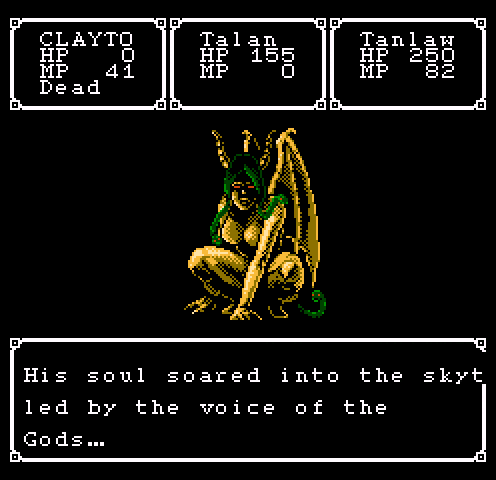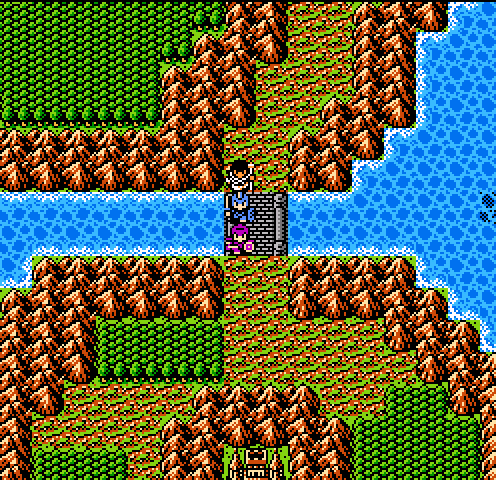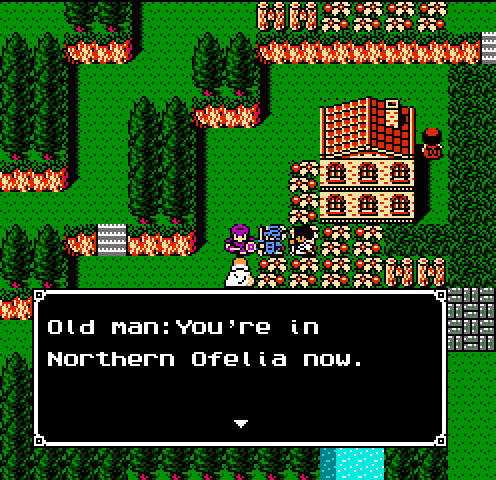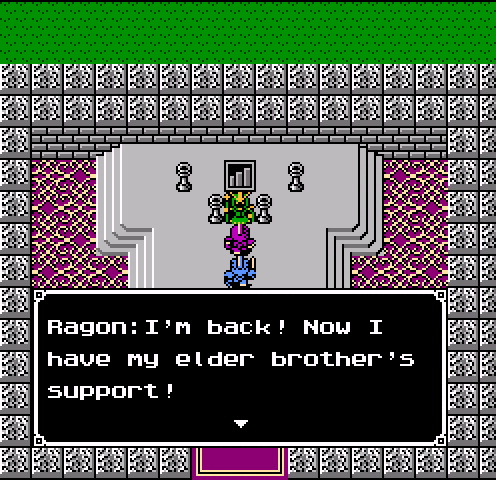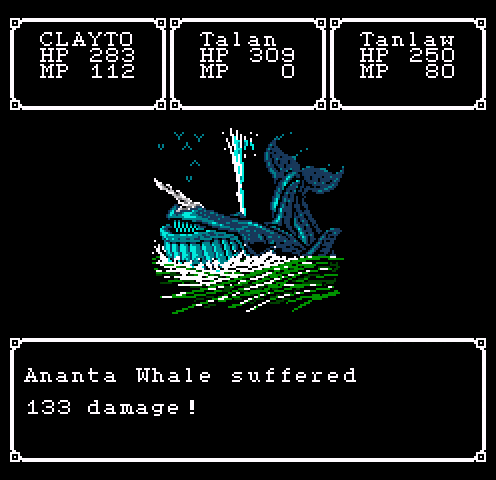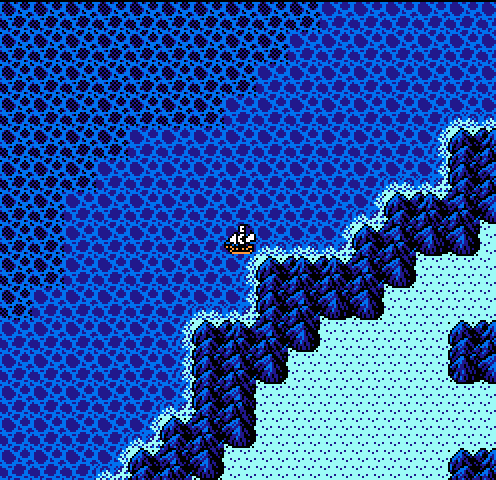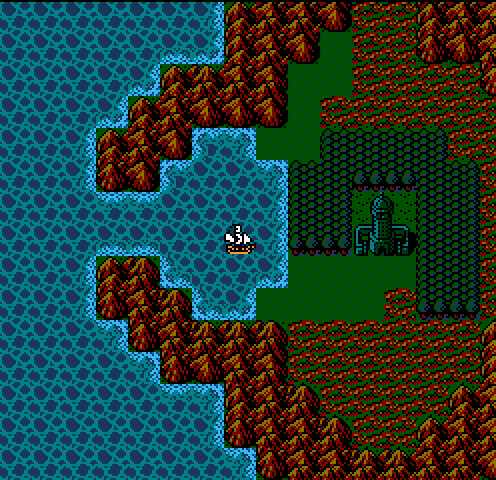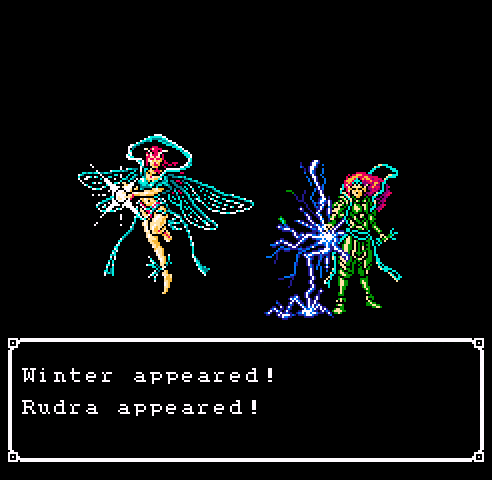Minelvaton, Without Roads
minelvaton saga ended on the promise that, with the evil prince ragon defeated, southern ofelia could reconnect with the many other lands of minelvaton. five years later, silva saga (1992) made good on that promise. i was elated when the game plopped me down in a miniaturized version of southern ofelia (not unlike dragon quest 2’s condensed alefgard), before quickly crossing into northern ofelia, which always loomed just out of sight in the previous game. but despite my initial excitement at finally stepping into the world of minelvaton at large, i couldn't make the ensuing experience add up, either as a followup to minelvaton saga or on its own terms.
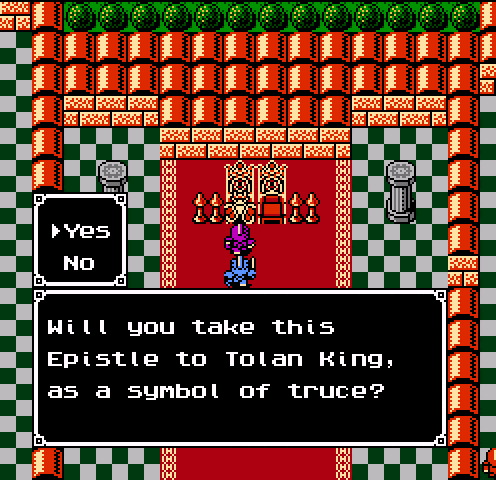
viewed on its own, silva saga is a simple, standard rpg. i played the prince of palmeccia and grandson of the warrior of light, the hero of minelvaton saga, whose heroic destiny was to save the world from the ill-defined menace of the dark god zuhl. unlike minelvaton saga's sprawling world-puzzle, the flow of progress in silva saga was linear and well-signposted. each step along my quest looked about the same: someone would tell me where i needed to go next, but there would be a roadblock of some sort, and i’d need to find the right object or person to help me surmount it—which usually meant venturing into a dungeon or to the next town over. once i did this, i could reach my intended destination where, invariably, i would be informed of the next destination and the next roadblock. this pattern repeated without many surprises until i found myself in the lair of the final boss. neither random encounters nor boss battles offered much tension or stimulation, as nearly every fight could be safely won by holding down the A button and wiping out the enemy with basic attacks (although there were sometimes faster ways). big picture, silva saga came off as an unchallenging, routine rehearsal of rpg forms that does little to complicate the picture structurally or thematically.
i stand by this analysis, but i admit it disregards silva saga's most distinctive formal feature: its multiple party system. i have my reasons for leaving it out, but for now, let me introduce what i’ve omitted. besides my main crew of story-relevant heroes whom i controlled directly, silva saga let me raise two AI-controlled parties, one of hired mercenaries and another of elemental idols. they could advance in level just the same as the main party, and i could rotate the active party each round in combat. i had many reasons to expect this system would deepen my experience: only the active party at the end of battle gets experience points, so leveling my squads equitably required extra attention and effort. mercenaries need to be equipped with new equipment to stay sharp, which put pressure on my finances, and they're subject to permadeath if they die, encouraging me to deploy them carefully. idols can be combined with each other to produce over a dozen different forms, but reset to level 1 when they do, so there was a tradeoff between developing old forms and investing in new ones. evidently there was no shortage of productive tensions built into the system.
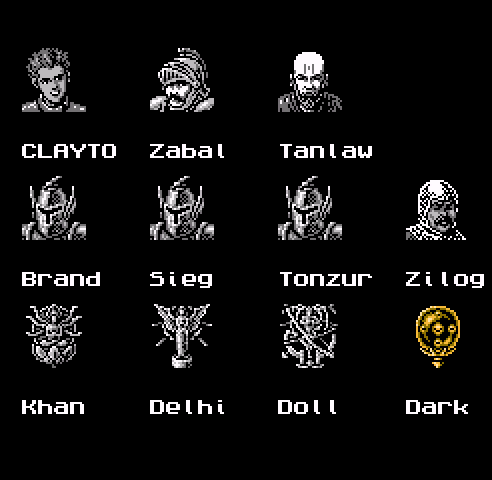
i had the most fun with silva saga early in the game when i was still expecting that developing all of my squads equitably would be important down the line. attempting to level them (roughly) evenly changed the way i evaluated combat situations, as i was mediating the separate goals of clearing battles efficiently and allocating experience to my neediest parties, and it encouraged me to take on additional risks or troubles when when these two goals didn't align (fire emblem is all about this). i didn't need to do this. the game was quite easy at this point, and didn't meet me with any problems that only well-developed mercenaries and idols could solve—but i raised them all anyway, and i had fun with it. i hoped it would pay off later, and for the time being, it beat holding down the A button.
but as the game went on, it became clear that the tensions built into the system would not be realized, and the illusion of depth wore off. leveling all my parties, keeping my mercenaries alive and well-equipped, deciding whether to keep or combine idols: none of it ever made much of a difference. to some degree, this was because of flaws in the system. my idols' AI routines were committed to choosing the wrong move in every situation, wasting turns and MP until they had no options left but their miserable physical attacks. what does it matter whether my idols are underleveled or what form they take if they're never going to be effective anyway? to a much greater degree, however, it was a consequence of level design. the combat and survival side of silva saga never pushed back in any way that made my investments in my mercenaries and idols feel valuable. no obstacle was ever placed before me that called for the specific talents of my secondary parties, nor was the game generally challenging enough at any point for the extra manpower to meaningfully affect my odds of survival. i did make use of my mercenaries (who were much more reliable than my idols), but mainly because delegating the party to AI control was a few seconds faster than manually inputting commands for my main squad. for all the formal complexity of the party systems, their practical result was an experience no richer or more textured than if i had only been allowed a single party. it’s no accident that my introduction earlier ignored mercenaries and idols: at the end of the day, they’re functionally ornamental, a skin of cellophane over the meatless bones of the underlying gameplay.
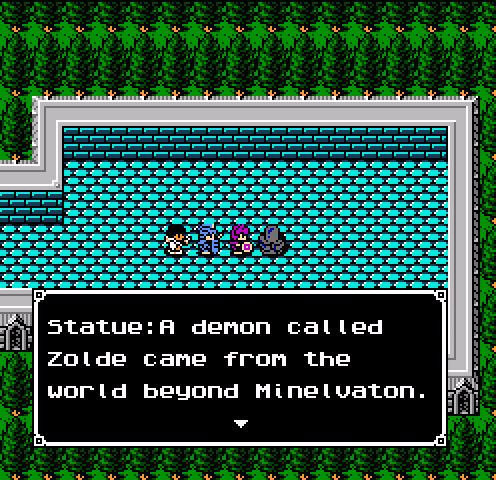
now recall that silva saga does not exist on its own: it’s a direct sequel to minelvaton saga. that that game was thematically and structurally rich makes silva saga's lack of substance sting all the more. from its little hallmarks like minstrels foreshadowing endgame locales and teleporting on the minelva road, to structural ideas like assembling clues from townspeople and fortune tellers who frequently change their stories, to the overriding theme of roads and approaching horizons that wends through the entire adventure, so much of what made minelvaton stand out is abandoned in silva saga. of course, i always support sequels expanding in new directions. if silva saga had retreaded all the same ground as its predecessor, that would have been a mistake too. but silva saga hasn't expanded in any direction. it's not just that the things i loved are gone. the mindset that produced them, the curiosity and reflectiveness about the rpg genre and what’s going on in its guts, that's gone too. instead, what...? a superficial pastiche of dragon quest? where is silva saga's curiosity? the game has no voice of its own, nothing to say and no questions to ask. after getting so much out of minelvaton saga, i can’t help but feel disappointed.
perhaps i’m too harsh. silva saga does have a few real strengths, even if they're a little disconnected. its simple scenario design and clear directions, combined with a high walking speed and short overall runtime, make for a brisk progression that never has the chance to get dull. the dungeons, which i grew to love, are dense, concise little mazes with just enough branches, loops, and verticality to make navigation engaging without becoming perplexing or exhausting. and the art direction is gorgeous all around: i was charmed by the changing colors of the world map throughout the day-night cycle, and doubly so by the amount of love and effort went into large, elaborate sprites even for non-boss enemies. looking beyond its flaws, silva saga is a handsome, smooth, and succinct adventure, with a handful of ideas that were pretty neat, even if they didn't quite pan out. one could imagine that it might be a good choice for an rpg with 'training wheels' to ease new players into the genre without insulting their intelligence. maybe that was even the intent. silva saga may be wanting as a minelvaton saga sequel, and its biggest ideas don’t land, but... maybe more generous reads are still possible.
all this is to say that as much of a letdown as my experience was, i don't feel prepared quite yet to dismiss silva saga out of hand. is there an angle on it i'm not seeing? have i failed to understand its goals and identify the objects of its hardest and most passionate thought? i'd love to see someone more imaginative than myself take a crack at it and put forward an enlightening reading. until then, it'll be tough for me to remember silva saga as much more than a brilliant rpg's uninspired sequel.
